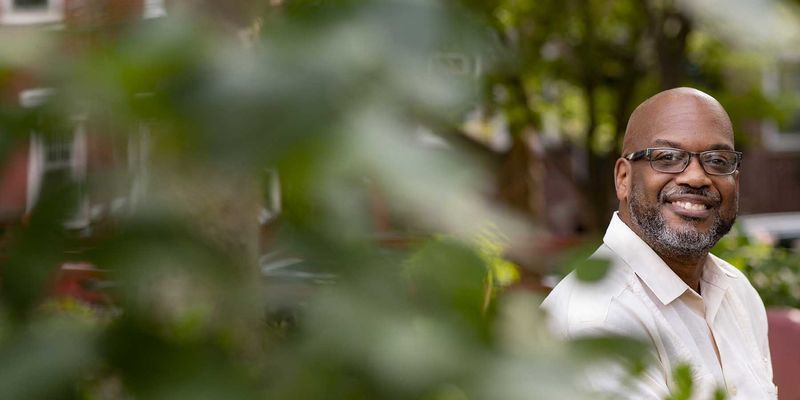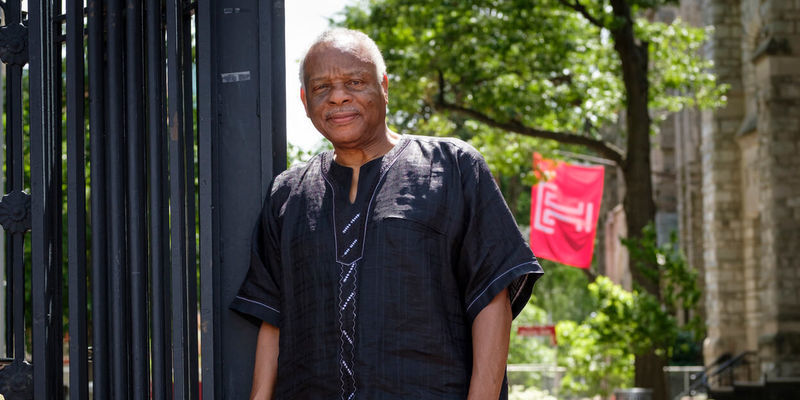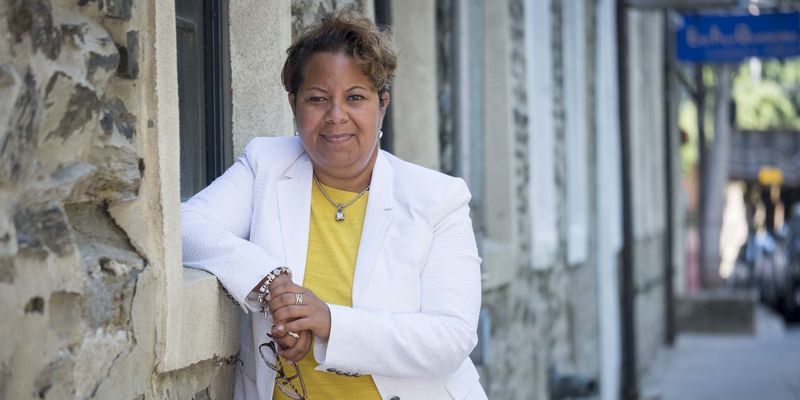Issues of racial injustice have helped shape the 2020 presidential election
Michael Sances, assistant professor of Political Science, discusses the impact of racial injustice on the national campaign and how elections affect criminal justice policy.
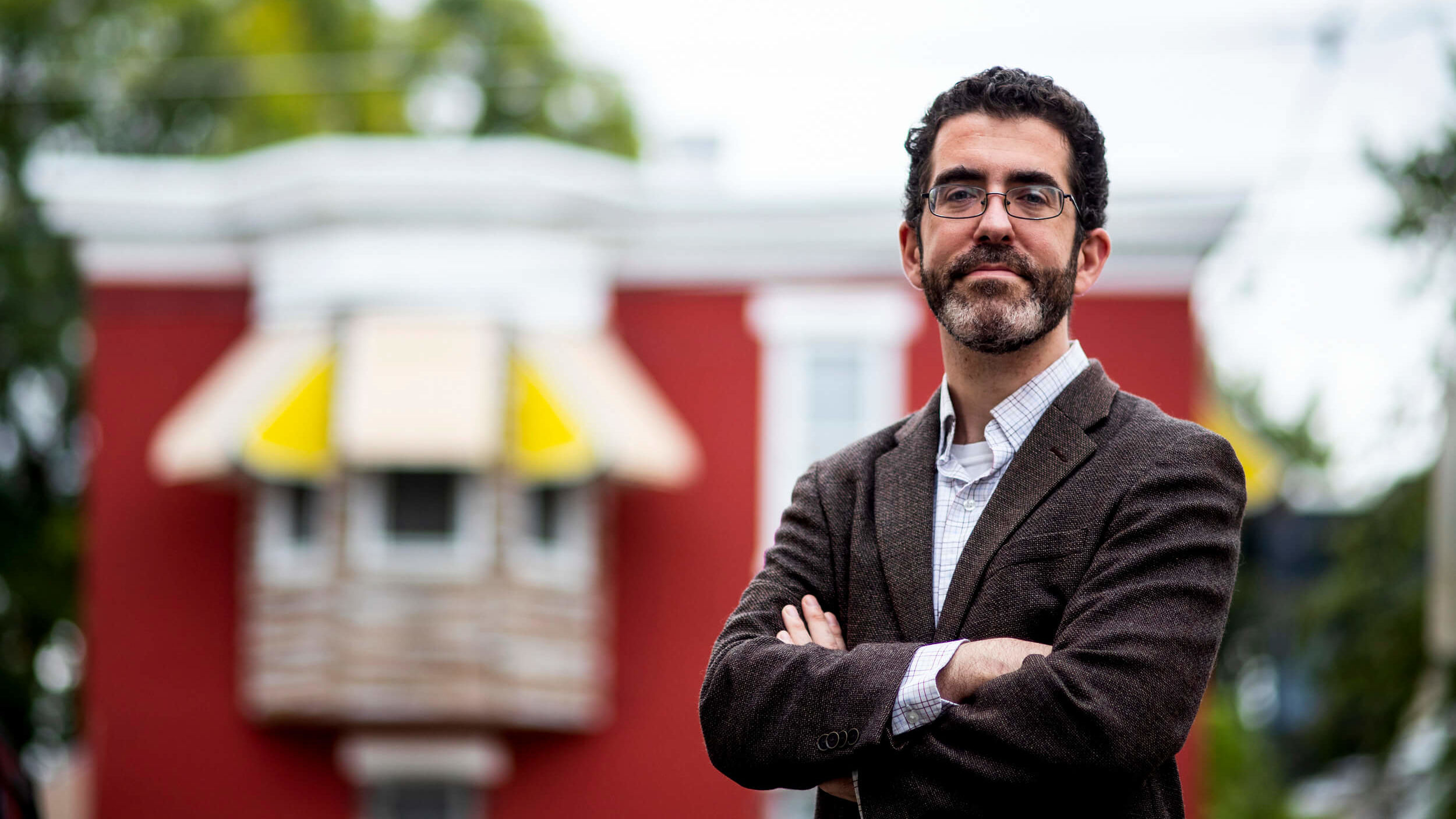
From the coronavirus pandemic and economic downturn to the Black Lives Matter protests, American voters are going to the polls in a presidential election unlike any other.
Issues of race and criminal justice are at the forefront of the national campaign. Yet while the president sets the tone for the country, Michael Sances, assistant professor of political science at the College of Liberal Arts, believes it’s local and state elections that really shape criminal justice policy.
Temple Now: How does your work relate to the protests against racial and social injustice that are happening right now?
Michael Sances: I do a lot of work about what are the factors that lead voters to make different decisions. And in particular, when voters go and vote for president, are they judging the incumbent on their record or is it more just a referendum on the mood of the nation? Or is it maybe about policy preferences that people might have about where they want to see the country go in the future? I’ve also done work on the particular issue of racial injustice and policing. Most of that’s at the local level. But of course, now we’re seeing that become a big issue in the national campaign.
TN: Is there any way to tell if voters in the 2020 election are planning to judge President Trump on his record in office?
MS: We know from looking at past elections that the state of the economy is a really strong predictor of what actually happens. And that was also true for years ago, even though the predictions weren’t super spot on. Basically when times are good, the incumbent does better and when times are bad, the incumbent does worse. And I think we’re definitely seeing that now. I mean Trump’s odds of winning, if we can remember back to before COVID-19, I think he had basically a 50-50 chance, maybe a little bit better. That’s because the economy seemed to be in pretty good shape. And since the pandemic, that’s when his fortunes really turned. From [the Trump campaign’s] point of view, their campaign is in a really tough spot, so they have to figure out: What are the issues they want to talk about? Do they want to focus on Trump’s record on the economy? They probably want to minimize how people think about Trump’s record on COVID-19 because most people don’t like his record on COVID-19. And Trump, for some odd reason, has started to talk about what he calls law and order and issues of race. That’s kind of weird, because we know voters don’t really trust Trump on race. Each candidate basically thinks that voters are going to judge based on Trump’s performance on different issues. It’s just they want voters to focus on the ones they think will be of advantage to them in the election.
TN: There have been protests against police brutality before. What makes the ones sparked by George Floyd’s death different?
MS: The last big wave of protests probably started in 2014 with the Michael Brown killing. And Black Lives Matter was kind of unknown. The big difference after George Floyd is that people not only know about it more, they also had more positive opinions. So in polls, we know that people are more likely to say, “Yes, I support Black Lives Matter.” That was never true before. It never really had much support. We saw the same sort of shift when we looked at who showed up at the protest. Typically, the protests in the past, there weren’t a lot of white people there, to put it bluntly—and that was a big difference this time around. At least since May, we saw a shift in favor of the Black Lives Matter movement.
And Trump decided to start shifting to talk about what he calls law and order. It’s not clear yet if that’s going to work, but that I think is basically what he’s hinging his campaign strategy on: the idea that if you can convince voters that this is not about racial justice and not about nonviolent protests, but about chaos in the cities. Then maybe he’s thinking that gives them an edge. But if not, if voters are thinking about this in terms of racial justice and nonviolent protests, that’s politically pretty bad for the president, because they really don’t trust Trump on issues of race. Issues of race in America have never been good for Trump. He seems to think that issues of law and order and crime, if you can frame it that way, will be good for him. But I don’t know that we know that’s true. We’ll have to see.
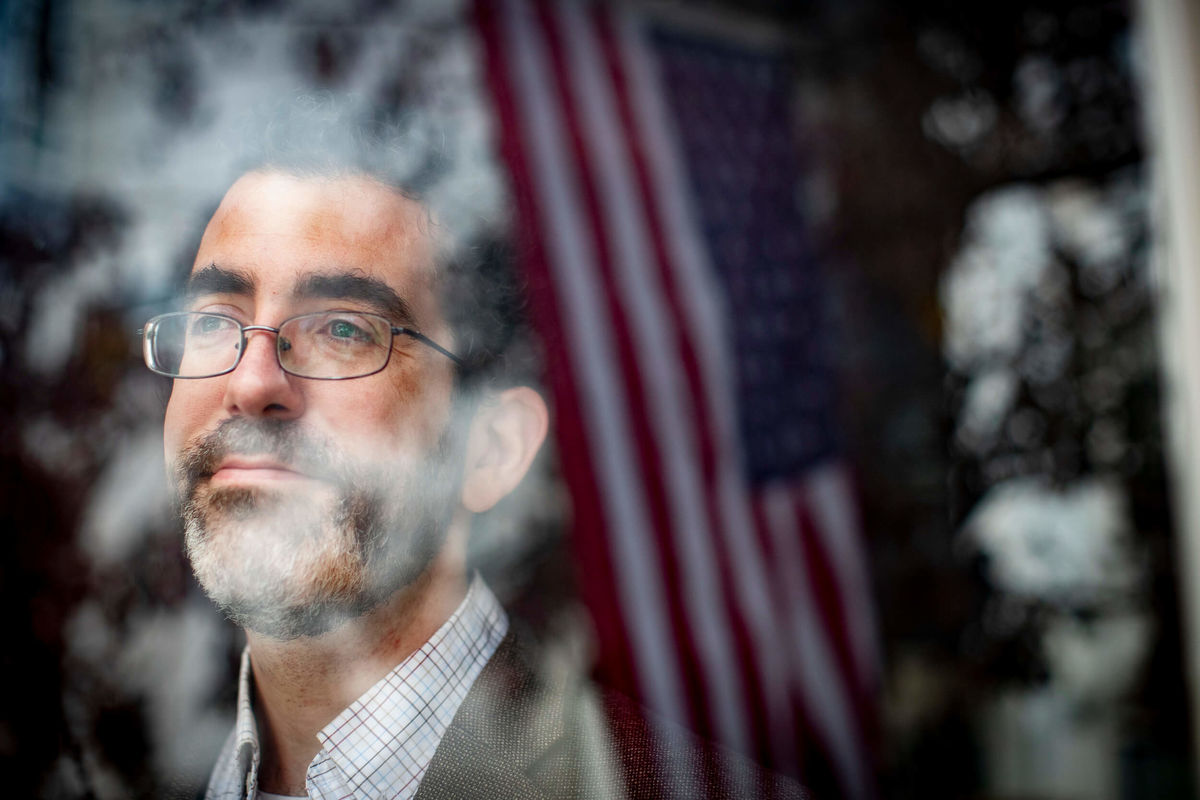
Michael Sances feels undecided voters should listen carefully to the sorts of messages each candidate is giving out about different issues. (Photo by Ryan S.Brandenberg)
TN: How does a state government’s role in shaping criminal justice policy differ from the federal government’s?
MS: It’s a huge difference. And it’s one that kind of gets obscured when we have a presidential election. You can say this about a lot of issues, but I think especially with criminal justice, the states and local governments, they almost do everything. And the federal role is very, very limited. It’s important, but it’s pretty limited. You can see that when you look at who is in prison in the U.S. We have more people in prison than any country. But the vast majority of those people are in state prisons, they’re not in federal prisons. That means they’re there for violating state laws. And their sentences, according to state laws, the federal government doesn’t have much direct influence over that. What the federal government does have control over is things like oversight of local police departments. We have a Department of Justice that enforces civil rights laws. And [depending on] who the president is, they’re going to direct their attorney general to focus on different priorities. Whether the Department of Justice focuses on, say, corruption or civil rights. That’s one area the president can make a difference. But I think the biggest area is probably just the tone that they set for the country.
TN: Do elections actually end up changing or affecting policy?
MS: If you were to say which elections do it more, I think you could say it really is the state and local level. It’s kind of odd that we all focus on the national election. Do elections change policy? Yes, I think so. Maybe not in huge ways, not in immediate ways. But certainly, they make a difference in the tone and mood of the country. Just think about the major pieces of legislation that have come out of Congress under Obama versus Trump. Under Obama was the Affordable Care Act. That was the biggest expansion of the social welfare state in the U.S. in many years. Under Trump, it was a giant tax cut. That’s totally consistent with the Republican and Democratic platforms. One is focused more on expanding the role of government and using government as a way to intervene and help people out when the market fails. And the other is more of a market-based approach to government. Get out of the way and let’s let the markets work.
TN: What should we be paying close attention to in the run up to the presidential election?
MS: If you’re an undecided voter, I would say: look at the sort of messages that candidates give about different issues. What are they trying to make the campaign about? Are they trying to make it about the economy? That’s an issue that most voters actually trust Trump on more than Biden. Or are the campaigns trying to make it about COVID? How is Trump defending his own record? Because usually [if] you’re the incumbent, you’re running defending your own record. How is Trump talking about his record versus attacking Biden? You do have to listen carefully.
TN: What else would you recommend voters do?
MS: Regardless of the state you live in, you want to go to your secretary of state’s website. Google your secretary of state or your state election deadlines. And that’s where you want to go to make sure you know you’re registered, how you get your mail-in ballot, if you don’t want to vote in person—if you even can vote in person, because that’s not true everywhere. I think also one piece of advice that’s out there from election administration people is you want to try to flatten the mail curve. You don’t want to overload the system by everybody sending their ballot in at once. It helps if you do it early, because not everyone’s going to do it early, and put less stress on the system, so we’re not counting ballots until Christmas.
—Edirin Oputu
